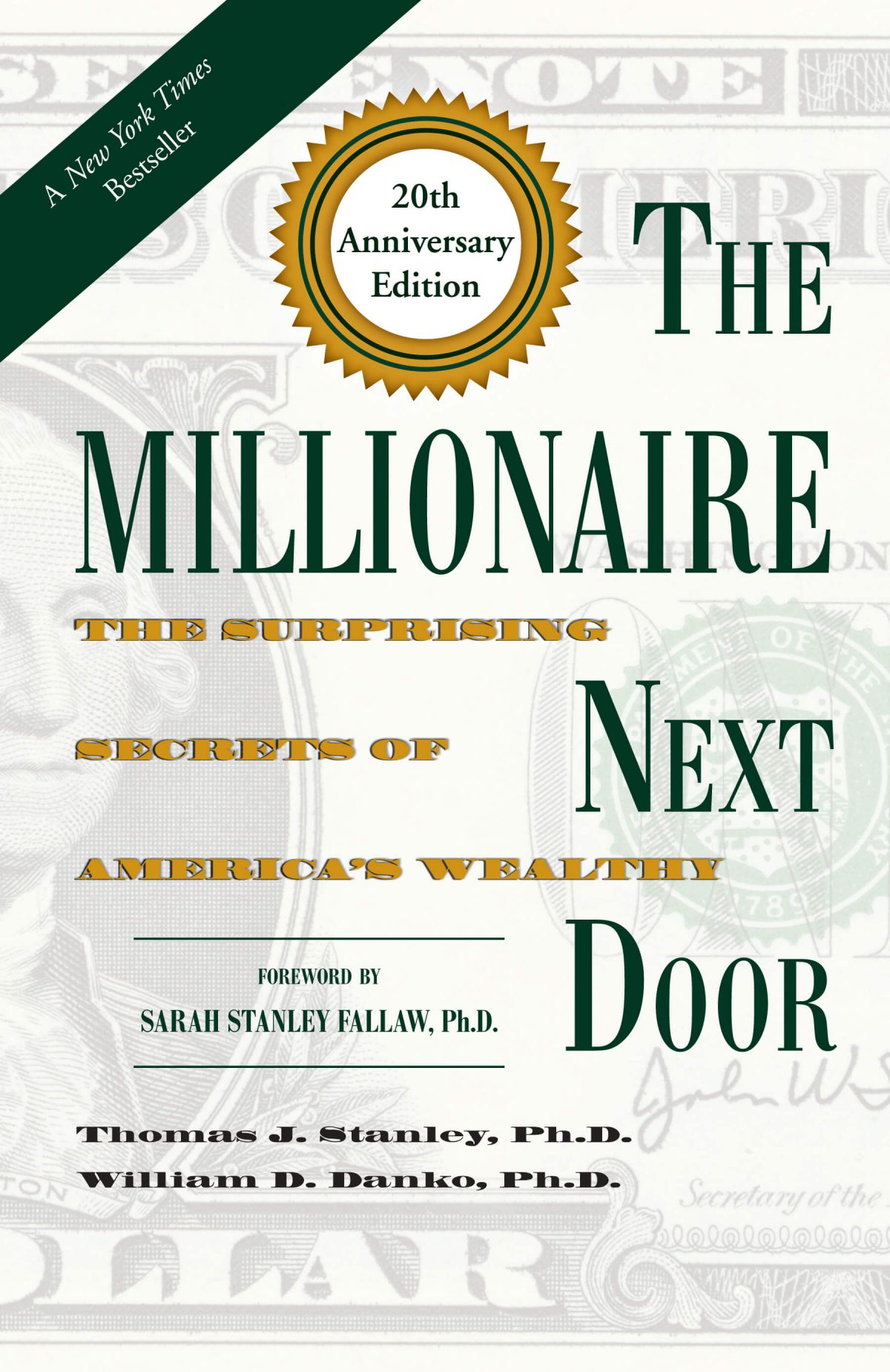The Millionaire Next Door: The Surprising Secrets of America’s Wealthy, Twentieth Anniversary Edition
About the Book
“Why aren’t I as wealthy as I should be?” Many people ask this question of themselves all the time. Often they are hard-working, well educated middle- to high-income people. Why, then, are so few affluent. For nearly two decades the answer has been found in the bestselling The Millionaire Next Door: The Surprising Secrets of America’s Wealthy, reissued with a new foreword for the twenty-first century. According to the authors, most people have it all wrong about how you become wealthy in America. Wealth in America is more often the result of hard work, diligent savings, and living below your means than it is about inheritance, advance degrees, and even intelligence. The Millionaire Next Door identifies seven common traits that show up again and again among those who have accumulated wealth. You will learn, for example, that millionaires bargain shop for used cars, pay a tiny fraction of their wealth in income tax, raise children who are often unaware of their family’s wealth until they are adults, and, above all, reject the big-spending lifestyles most of us associate with rich people. In fact, you will learn that the flashy millionaires glamorized in the media represent only a tiny minority of America’s rich. Most of the truly wealthy in this country don’t live in Beverly Hills or on Park Avenue-they live next door.
- Author: Thomas J. Stanley Ph.D. And William D. Danko Ph.D; Foreword by Sarah Stanley Fallaw Ph.D
- Publisher: Dev Publishers & Distributors
- Edition: 20th Anniversary Edition
- Year: 2021
- Dimension: 15 x 23 cm
- No. of Pages: 272
- Weight: 500 gm
- ISBN: 9789387496460
- Binding: Softcover
- Territory: South Asia
- Price: ₹ 595
About the Author
Thomas J. Stanley was an author, lecturer, and researcher who started studying the affluent in 1973. He died in 2015. William D. Danko is professor emeritus at the School of Business, State University of New York at Albany. Sarah Stanley Fallaw, Ph. D., is president of DataPoints, a company that provides assessments based on the research and data of her father, Thomas J. Stanley.
Reviews
The implication of The Millionaire Next Door…is that nearly anybody with a steady job can amass a tidy fortune.
— Forbes
The kind of information that could lift the economic prospects of individuals more than any government policy…The Millionaire Next Door has a theme that I think rings very true…”Hey, I can do it. You can do it too!”
— Rush Limbaugh
[A] Remarkable book.
— The Washington Post
A nerve has been hit….[For] people who want to become wealthy.
— USA Today
A primer for amassing wealth through frugality.
— The Boston Globe
An interesting sociological work.
— Business Week
A fascinating examination of the affluent in American society.
— The Dispatch (Lexington, NC), (Nc) Dispatch
These, for the wise, are tips for all of us….A very readable book.
— Cox News Service
Debunks the image of the rich as high-living spendthrifts.
— U.S. News and World Report
I love the book, The Millionaire Next Door. It talks about how it is a myth that most millionaires in America have inherited their money. The fact is, we have created such a great country over 250 years. We have actually found the way for poor people to go from nothing to huge wealth and to create a life-changing opportunity for their children and grandchildren. We celebrate it, write movies about it, and our libraries are full of books about it. There is nothing wrong with that.
— Bernie Sanders
The authors mine reams of data to show the surprisingly frugal traits millionaires have in common. “The main lesson provided is that high income does not equal wealth,” said J.R. Rosskamp, managing director of Veritas Partners, Inc., a business consulting firm. Rosskamp calls “Millionaire Next Door” a “must read, and the earlier the better.”
— Chicago Tribune


